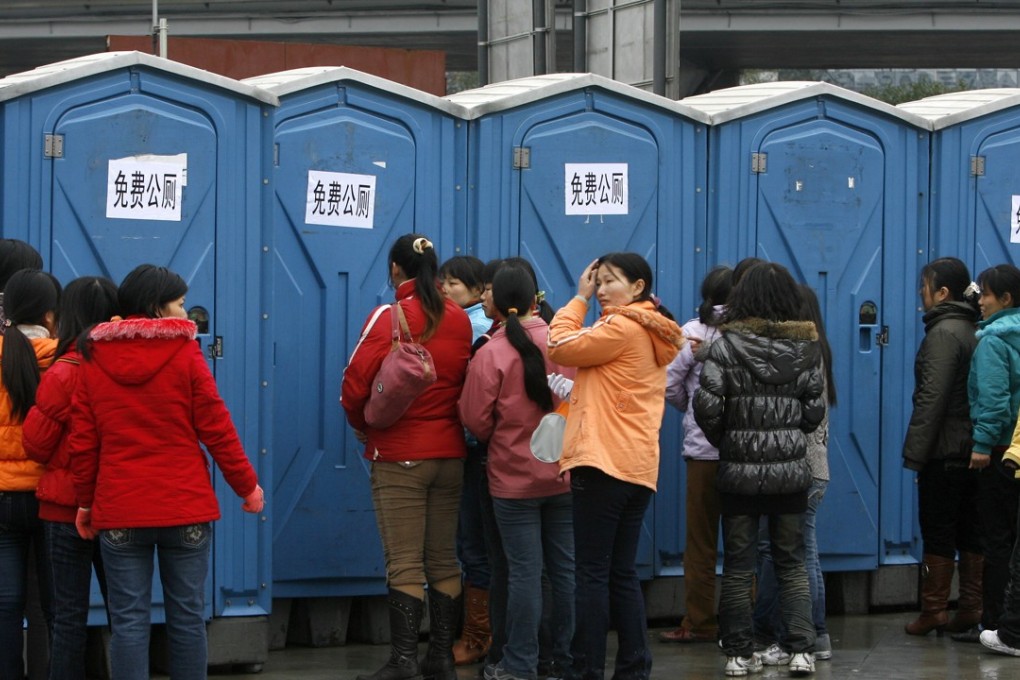Xi ‘toilet revolution’ faces rural challenge
Convincing farmers that age-old practices have to end for the sake of hygiene and reducing disease is not as simple as it would seem

Toilets have been called the barometer of civilisation, the idea being that the better a nation manages its waste, the more civilised it is. President Xi Jinping certainly thinks so, the “toilet revolution” he has been pushing for the past two years being in line with his goal of improving quality of life to create a moderately affluent society by 2021. The campaign began with improving public facilities at tourist sites and has been so successful that it is being expanded nationwide to cities and rural areas. That so prominent a person is taking time to promote such an issue may seem peculiar to some not living in China, but it is an important matter linked to health, livelihoods and the economy.
Chinese leaders have long known of the benefits, sanitation, hygiene and disease prevention campaigns having been started in the 1950s. But it is only in recent decades that the funding and resources have been available to make substantial improvements. Rapid urban expansion has enabled ever-larger numbers of people to be connected to sanitation systems, although the sheer size of the population requires huge amounts of investment. For all the progress, though, 57 million households still do not have their own toilets and, of those, 17 million face serious hygiene issues.
Much of the problem remains in rural areas, despite great advances. The coverage of sanitary toilets in the countryside has increased from 7.5 per cent in 1993 to 78.5 per cent in 2015. While expanding public conveniences in tourist areas, Xi has made the countryside the focus of the programme for the next three years, with targets of 85 per cent by 2020 and 100 per cent by 2030. This is where the biggest challenge lies.
Rural toilets are usually a hole in the ground over two planks. Farmers collect human waste for composting to fertilise crops. Flush toilets deprive them of composting material and septic tanks require extra cost and effort to empty and clean. Convincing that age-old practices have to end for the sake of hygiene and reducing disease is not as simple as it would seem.
But Xi has the resolve; his visits to farms are marked by inquiries as to the condition of toilets and the need for them to be clean and modern so that a “new countryside” can be built. That is the drive behind the 68,000 toilets installed or upgraded at tourist sites up to the end of last month and the goal of building a further 64,000 by 2020. The aim is to boost tourism by making a trip to the bathroom less challenging for visitors, but overhauling the sanitation system has wider implications. As the UN’s recent World Toilet Day made clear, an up-to-date and environmentally responsible programme is humane and keeps people healthy and productive.